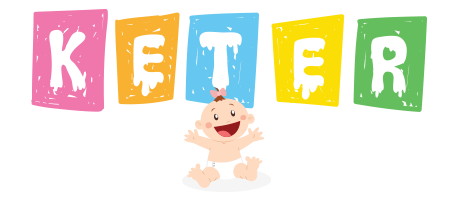
Who Needs Positive Parenting Advice? What do you say?
Being positive parents means slightly different things to different people. But the main idea could be summarized as follows:
Positive parenting emphasizes warm, positive family interactions and guides children by encouraging and reinforcing their rewards
The goal is to empathize with children, offer them warmth and support, and create situations that make it easier for children to behave cooperatively and constructively.
Is it worth it? Research is crucial at this point.
For example, studies show that children with behavioral problems are more likely to improve if their parents abandon hard disciplines in favor of positive parenting techniques.
There is also evidence that the approach works in the classroom. When high school teachers were instructed to replace the policy of empathic discipline with the promotion of empathy and problem solving, the rates of decline were reduced.
And studies suggest that positive parenting protects children from the effects of toxic stress. Not only do children have better health outcomes, but they are less likely to develop stress-related brain abnormalities. It is therefore clear that families benefit from positive parenting. But how can we achieve this?
Here are 10 tips for getting the most out of your kids
- Get inside your child’s head.
Children can drive us crazy. Their behavior may seem irrational or unwarranted. But that's what it looks like on the outside.
Inside, children make decisions based on their experiences and perceptions of the world. Their behavior is motivated by legitimate needs. If we can guide them, we can find out what these needs are and address them.
So the next time you see inappropriate behavior, ask yourself the question: Is the child tired? Are you bored? Do you long for attention? Do you feel overwhelmed or threatened?
Is he facing perceived injustice or is he standing in front of a temple he can't resist?
Children have something to learn and, as I explain elsewhere, they are still developing self-control. We need to keep in mind their developmental constraints and benefit them from doubt.
- When in doubt, apply the Golden Rule.
What does it really mean to be empathetic, supportive, constructive?
This does not mean that you have to accept that the child's needs are reasonable. Sometimes not. This also does not mean that you are unable to enforce limits.
Instead, the goal is the type of mediator and mentor you want for yourself.
Someone who is ready to hear your side of the story and ensure you a fair and considerate hearing. Someone who gives you a reason and uses encouragement and good humor to lead you to an acceptable solution to your problems.
When others treat us in this way - with empathy, fairness and diplomacy - it shows feelings of friendship and trust. It eliminates stress and makes it easier for us to recover from negative emotions. It is good for children alike.
- Master the art of distraction.
For infants and young children, positive parenting is often a form of pulling children away from behaviors that you do not like.
It is ideal to prevent problems and prevent them with preventive measures (e.g. Gardner et al., 1999). For example, if you know that a preschool is fighting a toy, leave it hidden and give the children another activity that does not cause conflicts.
If the child is already doing something undesirable, act quickly and provide an alternative activity. For example, if your child has confiscated a forbidden item (like your grandmother's vase), feel free to pick it up and give it something else to play with.
Attention is also useful for older children. Are the brothers arguing on a trip? It is natural to be tortured and stopped. But think about their side of things: they are stuck in a vehicle, they are restless and uncomfortable, and they certainly suffer from some injustice.
Telling them to stop won't help much in itself. They may experience feelings of anger, withdrawal, or discomfort. They probably don't know how to stop. Actively involving them in turns, like a 20-question game, will make it easier for them to stop fighting.
- Use strategic humor and playfulness to motivate.
Jokes and nonsense can be a great distraction (Positive Parenting Tip # 3). However, they are also indispensable diplomatic tools. You will probably encourage more cooperation from your children if you express your demands with humor and if the work is played out.
For example, if your child leaves dirty laundry lying around, you may get irritated and swear. However, you are more likely to get better results if you play for it - encourage him to "stop dirty laundry" or play a game of throwing laundry in the bin.
- Make sure that most of your interactions are positive — even if that means ignoring some of your child’s misbehavior.
As mentioned above, positive social interactions make family relationships friendlier and more confident and encourage children to work together. It is therefore important to maintain a balance between your upside-down interactions, even if your child is struggling with behavioral problems.
How can you do it? Clinical psychologist Timothy Cavell suggests imagining at least some sort of quota system - prioritizing which inappropriate behavior you should challenge and which behavior you should ignore - from now on.
